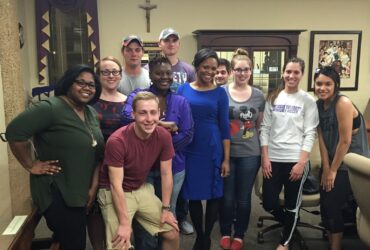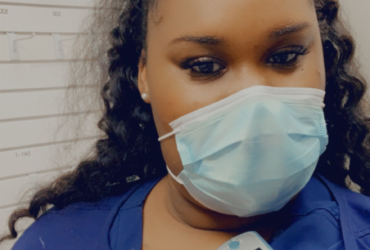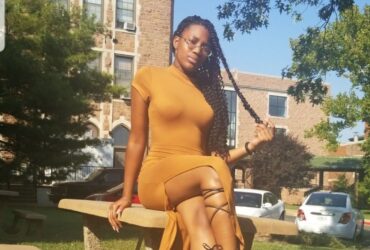In October of 1970, eight women known as the Fontbonne 8 staged an overnight lock-in at the Jack C. Taylor Library for one weekend to peacefully protest the treatment of Black students at the university. In an effort to achieve racial equality on campus, they wrote the Black Manifesto, which contained a list of demands such as establishing an African American studies minor.
44 years later, Corinne Mason, associate professor in Fontbonne’s Humanities Department, was helping a group of students complete a project about the Fontbonne 8. While some of their demands had been met, she realized Fontbonne still did not offer an African American studies minor.
“I thought it was crazy that students were calling for an African American studies minor in the 1970s, and we didn’t have one after all that time,” Mason said. “It seemed out of step with who we are as well as our goals as a university.”

Mason developed the curriculum for the minor in 2014, the same year as the shooting of Michael Brown in Ferguson, Missouri.
“We had our syllabus for the African American Studies course before Brown was killed, but we ended up rewriting it based on what was going on in our community,” Mason said. “The timing ended up feeling very meaningful, and creating this minor took on a whole new relevance.”
Courses such as African American History, African American Literature and Diversity Studies are designed to provide students with a better understanding of — and appreciation for — the history and contributions of African Americans in the United States. On occasion, special electives are also offered.
“I taught a course called Ferguson: Contexts and Consequences in the spring of 2015 that counted toward the minor, which was one of the most rewarding experiences of my career,” Mason said. “We had guest speakers like Brittany Noble-Jones, a former KMOV reporter who was the first journalist on the scene after the shooting, to help us better grasp what happened.”
Brianna Blocker, a 2015 graduate who majored in general studies with a health emphasis, took the Ferguson course and eventually became the first student to complete the minor.

“In my classes, we talked a lot about how the media can frame situations and events to shape the way we feel about them,” Blocker said. “One of our guest speakers said that if you have a photo and you zoom in on one detail like a shoe, you forget there is a person attached to it and you miss the big picture. That’s a lesson I remember every day when treating and diagnosing patients as a nurse at DePaul Hospital.”
While Blocker enjoyed presentations from compelling guest speakers, she also liked learning course material through a variety of other mediums.
“We didn’t just use textbooks and listen to lectures,” Blocker said. “We looked at videos and websites and had group discussions and projects, so regardless of whether you’re more visual, auditory or hands-on, you could learn. The way things were presented made you want to attend class, do homework, write and speak up.”
Blocker said obtaining the African American studies minor provided a valuable opportunity for her to learn from people with an array of backgrounds and perspectives.
“It was a very diverse environment,” Blocker said. “Lots of points of view were represented, so I was able to listen and learn from other people I wouldn’t normally get the chance to meet. It was a safe place to have discussions and ask questions.”

Khaliah Booker, a sophomore majoring in communication studies, chose to pursue the African American studies minor because it includes courses that span a range of disciplines and subjects, and it offers something for everyone.
“The minor may be called African American studies, but it’s about so much more than that,” Booker said. “You learn about people of all races throughout a variety of places and time periods and how their stories intertwine and impact one another.”
Booker said the African American studies minor has helped shape the way she sees the world today.
“Once you learn all the sides to a story, things start to make a lot more sense,” Booker said. “I took U.S. history last summer, and I understood it in a way I never have before thanks to what I learned in my African American studies courses. Instead of just listening, I could add things to the discussion that my classmates didn’t know.”
Mason, Blocker and Booker would recommend the minor to all students.
“On a practical level, you can fulfill a lot of your general education requirements through the minor,” Mason said. “More importantly, I don’t think you can understand our society if you do not understand African American history and how it is so integral to the fabric of this country. To be an informed citizen, these courses are critical.”
For more information about Fontbonne’s African American studies minor, visit https://bit.ly/3rYjEO9.

